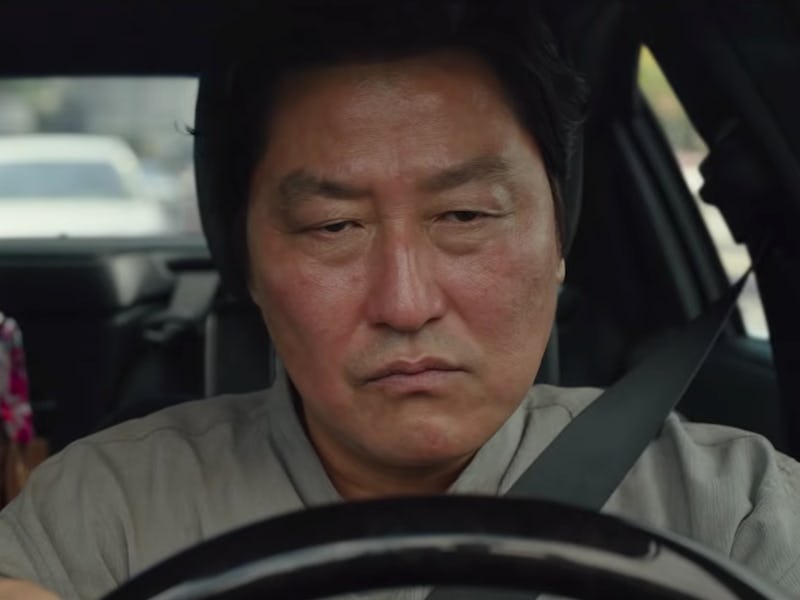'Parasite' star Song Kang-ho explains the wild, emotional ending (Spoilers)
Song offers up his interpretation of the ending of 'Parasite,' arguably one of the best movies of the year.

It isn’t the biggest or most outrageous movie of the fall season, but Bong Joon-ho’s Parasite is easily one of the best. A modern tale of South Korean wealth inequality, the film’s enthralling escalation of a ruse gone wrong transcends all language barriers. It’s a movie that speaks to those who feel the weight of being a have-not, in a world that favors those who have it all.
There are no bad guys in Parasite. But Bong Joon-ho’s film still doesn’t end well for any of its participants, most of all the Kims, a scheming family of four who seek to live off the scraps of the affluent Parks.
Parasite ends on a somewhat ambiguous note that’s just vague enough to leave audiences wondering exactly what happens in the movie’s final moments. But what does star Song Kang-ho, who plays a very pivotal role in its ending, have to say about it? In a word, it’s a bittersweet ending of “hope,” Song tells Inverse.
Major spoilers for Bong Joon-ho’s Parasite ahead.
In Parasite, the latest thriller from the director of The Host (2006), Snowpiercer (2014), and Okja (2017), the working class Kims conspire to live a life of luxury amongst the absurdly wealthy Parks. But when their scheme goes awry, the Kims find themselves swimming up to their necks in crap — figuratively and literally — before it all ends in tragedy.
At a birthday party, Kim patriarch Ki-taek (Song Kang Ho) murders Mr. Park (Lee Sun-kyun) in broad daylight before a dozen witnesses. That’s when Mr. Kim goes into hiding in the unlikeliest of places: Inside the Park’s home that they sought for themselves, in the gloomy basement where the Parks’ former housekeeper hid her husband from debt collectors.
Forced to live in secret and hiding from a German family that moves in, Mr. Kim awaits the day until his son resumes school, graduates, and works to buy the house for himself. Only then will the family reunite.
This happy ending plays out as Mr. Kim’s son reads a letter delivered by his father via morse code. But a final shot of the son, still sitting in the Kim family’s squalid subterranean home, suggests that this family reunion is nothing but a fantasy that will never actually happen.
The poor Kim family, who center in Bong Joon-ho's newest masterpiece, 'Parasite.' Song Kang-ho plays Mr. Kim, who follows his children into their scheme.
From the surface, it is clear Bong Joon-ho leaves it up to his audiences to decide how the story ends. If you like to believe in happy endings, the film provides exactly what that looks like. If you prefer to live in the real world, Parasite’s optimism reads as bittersweet, naive, and devastating.
To Song Kang-ho, the celebrated Korean actor who stars in the film and features prominently in its ending, is a believer in happy endings.
“What is certain in the film is that the family is separated in the end. But there is a trace of hope as well,” Song tells Inverse, via an English interpreter. “So, from my perspective, it didn’t feel like a permanent separation. On the surface it feels like it.”
Song further adds that his interpretation of Parasite’s ending is less about the actual endpoint of the characters, but a larger, bigger picture lesson that he believes Bong is trying to impart on moviegoers.
“I think the director is trying to say that if there is understanding and respect for the other, there is always reason for hope,” Song says. “A reason to hope for reconciliation.”
Parasite is in theaters now.